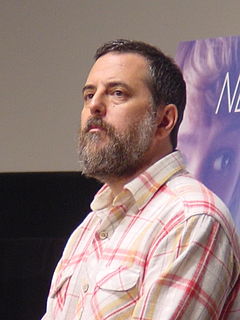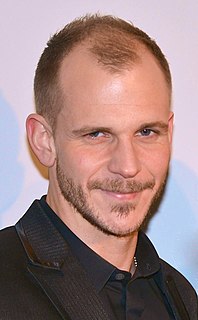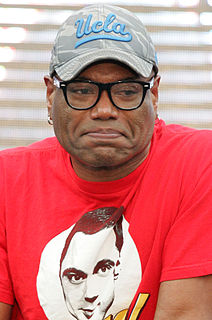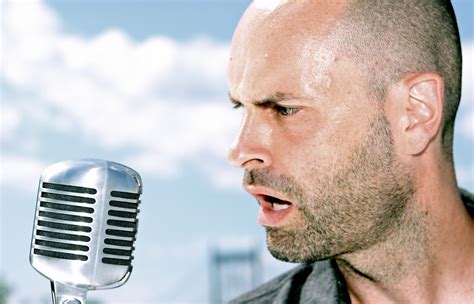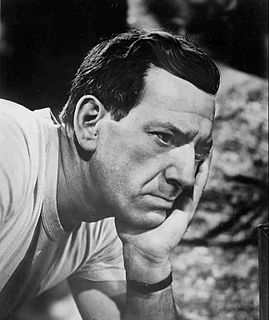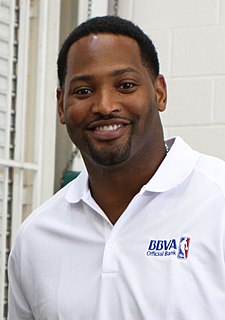A Quote by Daniel Radcliffe
In terms of drama school, what that will give you that you won't necessarily learn on a film set is the technical ability - ie, projecting your voice and stage craft.
Related Quotes
Film and stage are very different; I don't necessarily prefer one over the other. Every few years, I get a big itch to go back to the theater. To learn humility, to learn bravery and to remind yourself that the pistons that drive your craft are working on full power. And to remind yourself how badly paid actors can be.
Your first film is always your best film, in a way. There's something about your first film that you never ever get back to, but you should always try. It's that slight sense of not knowing what you're doing, because the technical skills you learn - especially if you have a film that works, that has some kind of success - are beguiling. The temptation is to use them again, and they're not necessarily good storytelling techniques.
I went to drama school in England, and you spend your first year working on the muscles surrounding the vocal mechanisms. You learn how you support it and create characters through your voice so that became an obsession. So I went to Hollywood thinking, 'Oh, I'm going to be one of the great voice-over artists.'
In England, when we're at drama school, we spend a lot of time learning the craft from playwrights and stage actors, who are very well trained in the basics of acting because they need to get it right the first time - you can't have second or third takes when you're in front of a live audience, unlike in film.
I grew up doing plays - I went to a stage school after school - and it's always something that I've wanted to do, but, in a weird way, if you do television and film and you didn't go to drama school and don't have a theatrical background, it's hard to get your foot in the door. In the same way that it is for theater actors to get into television and film. There's a weird prejudice that goes both ways.
The advice that I can give anyone wanting to be in the biz: do all the work, learn your craft. There are no shortcuts. If you stay with it, you will get an opportunity. Whether you make the most of an opportunity depends on if you are prepared. Learn your craft, every aspect of it. Eat it, drink it, sleep it, then when you are the most prepared, you can make the most of it.
I applied [to film school] figuring, "I need to find some structure for myself. I need to find a way to figure out what kind of filmmaker I want to be." And that is what film school provides you with. It'll teach you the basics of how a production works and the technical side of how to put everything together, but you could also learn that by working on film sets.
For me becoming a painter was an Everest, in terms of what I thought a painter was. There are many roads to becoming an artist. For me it wasn't art school. I didn't have that go to art school and then get a gallery. It's more like, how deep is your inner library to cull from. It's certainly not about technical prowess, just about depth of investigation. It takes time. I had 15 years of painting under my belt before my first New York show. I was glad to have that. It's a good thing to spend your twenties getting your craft.


